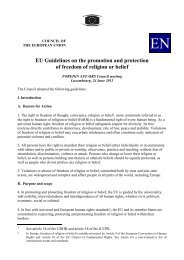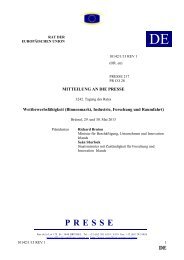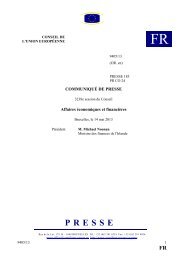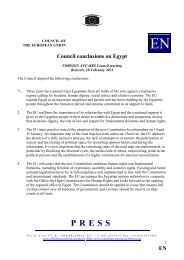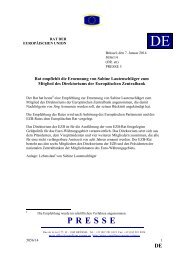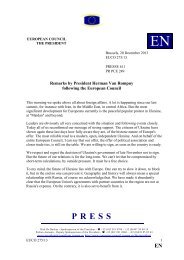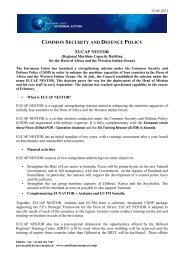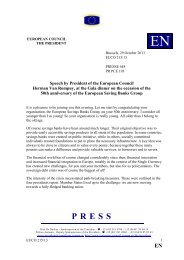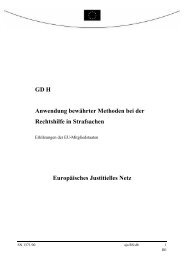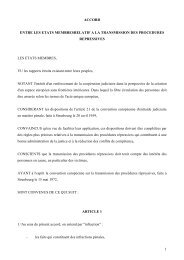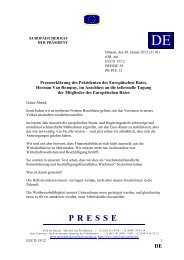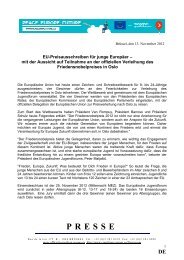14508/09 ADD 1 PL/vk 1 DG G COUNCIL OF THE ... - Europa
14508/09 ADD 1 PL/vk 1 DG G COUNCIL OF THE ... - Europa
14508/09 ADD 1 PL/vk 1 DG G COUNCIL OF THE ... - Europa
Create successful ePaper yourself
Turn your PDF publications into a flip-book with our unique Google optimized e-Paper software.
5.6. Women and the Economy (F)<br />
All employed parents have a right to at least three months' unpaid leave on the birth of a child.<br />
Several MS have introduced measures in order to improve the right to, or to increase the take up of,<br />
leave by fathers. However, women's take-up is much greater than men's in all countries, which<br />
means that parental leave does not always advance gender equality. Long parental leave periods,<br />
used only by mothers, may reduce female labour-force participation and affect future career paths<br />
and earnings adversely.<br />
MS have made commitments to improve the provision of childcare and pre-school facilities. In<br />
many countries a high proportion of childcare facilities operate on a part-time basis only and<br />
opening hours are not always compatible with employment, especially not with full-time work. As<br />
far as elderly care is concerned, there is a weak institutional provision of such care. This has gender<br />
implications since the majority of the elderly are women as well as the majority of the informal<br />
providers of care to the elderly.<br />
Both work and family are changing. Women have moved into the public world of paid work in most<br />
countries, but in general this has not been accompanied by men's assuming responsibilities for<br />
domestic and care work. The time-use studies confirm the unequal sharing of paid and unpaid work.<br />
In most countries, average "tied time" is longer for women than for men and this seems to be the<br />
case especially in the new MS, which seems to be related to women's long paid working hours.<br />
Unpaid care work is one of the biggest barriers to gender equality and affects women's ability to<br />
participate in the labour market on the same terms as men. Men tend to work longer average hours<br />
in paid employment than women EU-wide, with women working shorter hours in paid employment<br />
in all countries. This is both a cause and effect of sex stereotypes about men's breadwinner role and<br />
women's care-giving role, reinforcing existing divisions of labour.<br />
Progress has been made in recent years in the employment area. Employment rates have risen for<br />
women, thereby bringing the EU closer to the Lisbon targets. Unemployment has come down<br />
considerably, and the overall employment rate has been growing strongly. However, the economic<br />
outlook has changed markedly because of the financial and economic crisis.<br />
<strong>14508</strong>/<strong>09</strong> <strong>ADD</strong> 1 <strong>PL</strong>/<strong>vk</strong> 136<br />
ANNEX <strong>DG</strong> G EN



